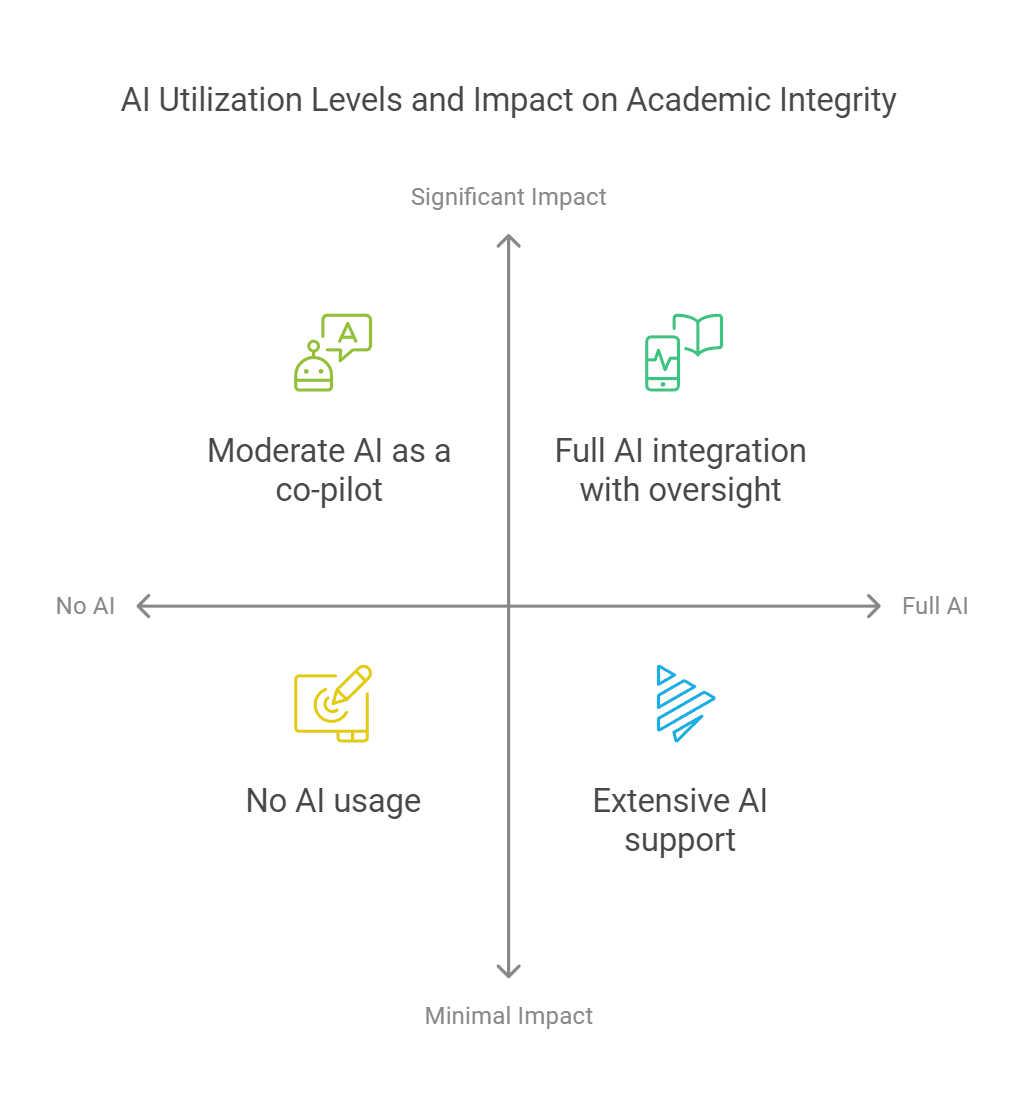
by Leon Furze, Mike Perkins, Jasper Roe, and Jason MacVaugh
Summary: This study explores the implementation of the AI Assessment Scale (AIAS), a framework for incorporating Generative AI into educational assessments. The pilot study indicates a significant reduction in academic misconduct related to AI, an increase in student attainment, and higher module passing rates.
Importance: The AIAS facilitates the effective integration of Generative AI in higher education, promoting academic integrity while leveraging technology to enhance learning experiences.
The study addresses concerns related to academic integrity and explores the potential benefits of GenAI technologies in educational settings.
Key Components of the AI Assessment Scale (AIAS):
The AIAS is a flexible framework comprising five levels, each defining the extent of AI utilization in assessments:
- No AI: Completion of assessments without any AI assistance.
- Minimal AI: Limited use of AI for specific tasks, with AI-generated content requiring citation.
- Moderate AI: AI serves as a “co-pilot,” collaborating with students to enhance creativity.
- Extensive AI: AI is used throughout the assessment to support the student’s work, without the need to specify AI-generated content.
- Full AI: AI plays a central role in completing the assessment, with students overseeing and refining the output.
Pilot Study Implementation and Findings:
Conducted at the British University Vietnam (BUV), the pilot study implemented the AIAS across various modules. The results indicated:
- A significant reduction in academic misconduct cases related to GenAI.
- A 5.9% increase in student attainment across the university.
- A 33.3% increase in module passing rates.
These outcomes suggest that the AIAS effectively integrates GenAI into higher education assessments, promoting academic integrity while leveraging AI’s potential to enhance learning experiences.
Implications for Higher Education:
The study advocates for a balanced approach to GenAI in education, moving away from punitive measures towards frameworks that incorporate AI ethically and transparently. The AIAS provides educators with a structured method to design assessments that foster critical thinking and human input, ensuring that AI serves as a tool to augment, rather than undermine, educational objectives.
For a comprehensive understanding, the full paper is accessible here.







